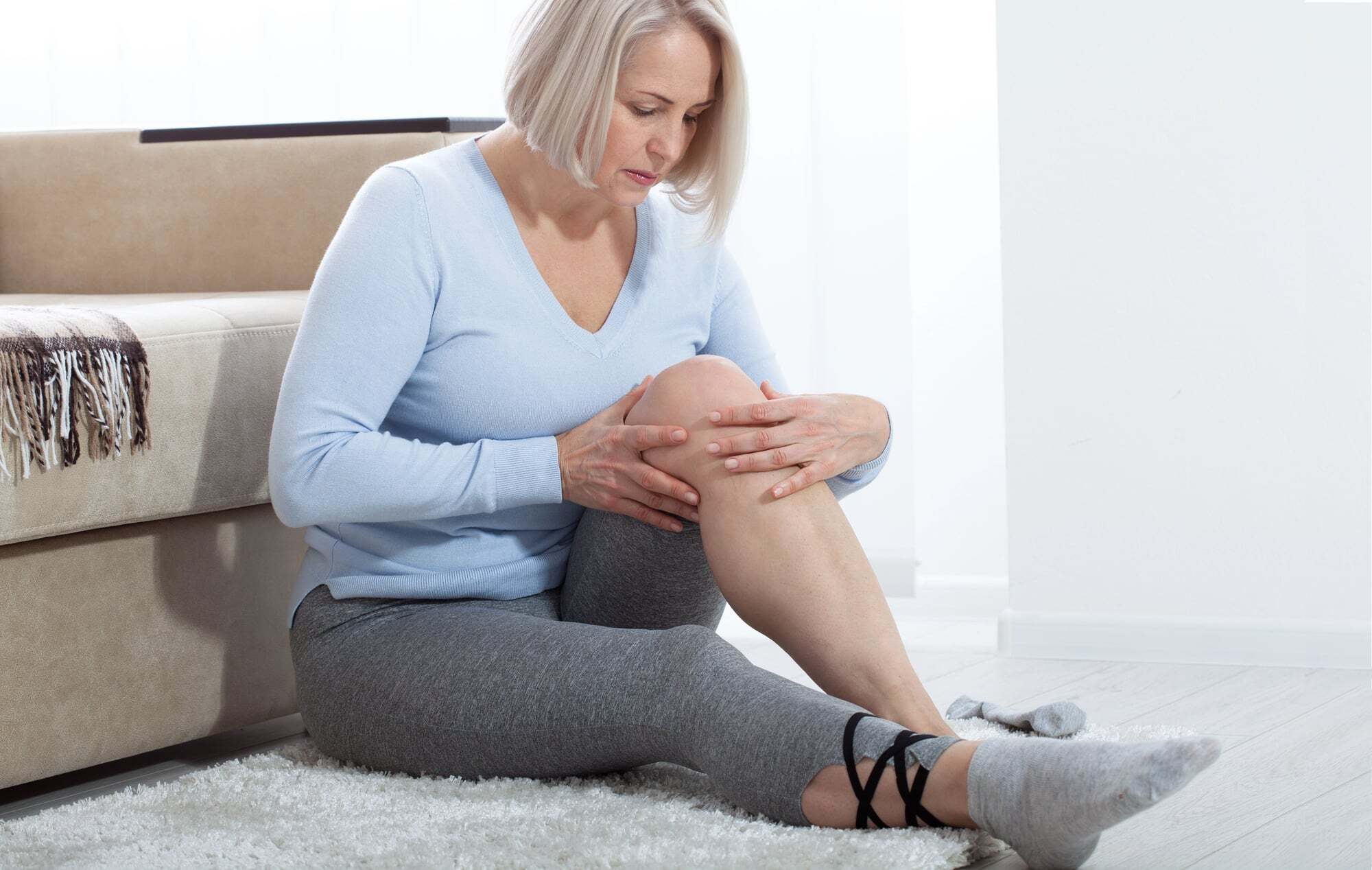Marc Darrow, MD.
What are we learning from this article?
- Post-menopausal knee and joint pain can be caused by many issues, research shows that estrogen levels may be a main factor for developing osteoarthritis.
- Lower estrogen levels can lead to inflammation and joint discomfort.
- The loss of muscle mass, known as sarcopenia, linked to estrogen levels, can further add to joint pain and instability.
- Non-surgical options and hormone supplementation can help certain women with worsening knee pain.

Recent studies indicate that hormone therapy, especially estrogen, may help in preventing or alleviating osteoarthritis symptoms, particularly in women after menopause. Estrogen is essential for maintaining the integrity of collagen and cartilage in our joints. As estrogen levels drop during menopause, an increase in joint pain and damage can often occur. Research indicates that estrogen alone or in combination with progesterone, might be beneficial in lowering both the occurrence and intensity of knee osteoarthritis
Women do have worse knee pain than men
- Researchers found that women were experiencing more pain, stiffness, and decreased physical functions
A study published in April 2025 (1) compared how 50+ year old male and female knee osteoarthritis patients perceived their pain. The patients were given a series of physical tasks to complete, and the researchers recorded their responses to pain and function. In this study, which involved 111 patients (50 men and 61 women), they discovered that after the measured physical activity, women experienced noticeably more pain and stiffness than men. Even though the radiological knee osteoarthritis grading was similar, the researchers found that women were experiencing more pain, stiffness, and decreased physical functions.
Varying estrogen levels during perimenopause, impacted symptoms of knee osteoarthritis
A study conducted in March 2025 (2) examined the how varying estrogen levels during perimenopause, impacted symptoms of knee osteoarthritis. Here the authors note lower estrogen levels can increase knee pain as estrogen is crucial for preserving bone and cartilage health. Reduced estrogen can result in the deterioration of articular cartilage and exacerbate the progression of arthritis, thereby intensifying knee osteoarthritis pain. Women generally experience the onset of knee osteoarthritis at a younger average age than men, and their condition is often more severe. Furthermore, postmenopausal women represent a larger segment of knee osteoarthritis cases.
Antidepressant prescriptions causes worse physical function in some
A December 2024 study (3) looking at the problems of older women from the Women’s Health Initiative Long Life Study found antidepressant prescriptions were cross-sectionally related to worse self-reported physical function, and with worse performance-based physical function after more than 20 years of follow-up. Complex relationships was also found for hypnotic/sedatives given to these women and the subsequent rapid deterioration in these women.
References
1 Ratan R, Basak M, Pal D, Dwivedi M, Haq RU. Females with Knee Osteoarthritis have Greater Pain and Reduced Physical Function but Similar Radiological Grading at Presentation: A Cross-sectional Observational Study. Indian Journal of Orthopaedics. 2025 Apr 15:1-9.
2 Zhao H, Yu F, Wu W. The Mechanism by Which Estrogen Level Affects Knee Osteoarthritis Pain in Perimenopause and Non-Pharmacological Measures. International Journal of Molecular Sciences. 2025 Mar 7;26(6):2391.
3 Beydoun HA, Beydoun MA, Kwon E, Alemu BT, Zonderman AB, Brunner R. Relationship of psychotropic medication use with physical function among postmenopausal women. GeroScience. 2024 Dec;46(6):5797-817.






